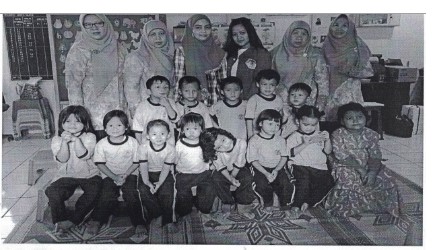Digital Literacy and Its Relationship to Early Childhood Behavior in PAUD
Literasi Digital dan Hubungannya Terhadap Perilaku Anak Usia Dini di PAUD
DOI:
https://doi.org/10.21070/kanal.v9i1.663Keywords:
digital literacy, education, early childhoodAbstract
This study aims to determine the relationship between digital literacy and early childhood behavior (PAUD) in PAUD . This research is an analytical quantitative type. The research design used was a study. The population that is the object of this study is all students in PAUD with a population of 100 people. The sample in this study was based on the calculation of the formula to 80 people. Sampling is carried out with the principle of pro-proportional sampling, where samples will be taken according to proportions. Based on the results of the study there is a relationship between digital literacy variables and student behavior in PAUD , P = 0.021. This can be known by the significance value (P) 0.021 <0.05. The conclusion from the results of the study conducted to 80 respondents consisting of children aged 3-5 years. Having a conclusion about the relationship of digital literacy in early childhood and how it relates to early childhood behavior in PAUD . 55.0% of respondents have good behavior with this digital literacy. The remaining 45.0% percent have bad behavior due to this digital literacy. Suggestions are needed the role of parents and PAUD in assisting and educating children on the benefits and dangers of using gadgets / other electronic equipment.
References
Alia, T. and Irwansyah (2018). Pendampingan Orang Tua pada Anak Usia Dini dalam Penggunaan Teknologi Digital [Parent Mentoring of Young Children in the Use of Digital Technology]. Polyglot: Jurnal Ilmiah 14, 65–65. doi: 10.19166/pji.v14i1.639.
Atep, S. and Dewi, R. (2019). Literasi digital abad 21 bagi mahasiswa PGSD : apa, mengapa, dan bagaimana. Current Research in Education: Conference Series Journal 1, 1–7.
A’yuni, Q. Q. (2015). Literasi Digital Remaja Di Kota Surabaya. Jurnal Fakultas Ilmu Sosial dan Ilmu Politik Universitas Airlangga Surabaya 4, 1–15.
Basyiroh, I. (2017). Program Pengembangan Kemampuan Literasi Anak Usia Dini. Tunas Siliwangi 3, 120–134.
Berger, P. and Wolling, J. (2019). They Need More Than Technology-Equipped Schools: Teachers’ Practice of Fostering Students’ Digital Protective Skills. Media and Communication 7, 137–147. doi: 10.17645/mac.v7i2.1902.
Green, L. (2010). The Internet: an Introduction to New Media (New York: Berg).
Helsper, E. J. and Smahel, D. (2020). Excessive internet use by young Europeans: psychological vulnerability and digital literacy? Information, Communication & Society 23, 1255–1273.
Kurniawati, J. and Baroroh, S. (2016). Literasi media digital mahasiswa Universitas Muhammadiyah Bengkulu. Jurnal Komunikator 8, 51–66.
Notoatmodjo, S. (2010). Metodologi Penelitian Kesehatan (Jakarta: Rineka Cipta).
Pentury, H. J. (2018). Pengembangan Literasi Guru PAUD Melalui Bahan Ajar Membaca, Menulis dan Berhitung Di Kecamatan Limo dan Cinere. DIKEMAS (Jurnal Pengabdian Kepada Masyarakat) 1, 14–21. doi: 10.32486/jd.v1i1. 167.
Pratiwi, N. and Pritanova, N. (2017). Pengaruh Literasi Digital Terhadap Psikologis Anak Dan Remaja. Semantik 6, 11–11.
Renee, H. and Coiro, J. (2018). Design Features of a Professional Development Program in Digital Literacy. Journal of Adolescent & Adult Literacy 0, 1–9. doi: 10.1002/jaal. 907.
Salehudin, M. (2020). Literasi Digital Media Sosial Youtube Anak Usia Dini. Potensia 5, 1–7.
Setyaningsih, R., Prihantoro, E., Abdullah, and Hustinawati (2019). Model Penguatan Literasi Digital Melalui Pemanfaatan E-Learning. Jurnal ASPIKOM 3, 1200. doi: 10. 24329/aspikom.v3i6.333.
Silvana, H. and Darmawan, C. (2018). Pendidikan Literasi Digital di Kalangan Usia Muda di Kota Bandung. PEDAGOGIA 16, 146–146. doi: 10.17509/pdgia.v16i2.11327.
Syukri, M., Sujoko, A., and Safitri, R. (2019). Gerakan dan Pendidikan Literasi Media Kritis di Indonesia (Studi Terhadap Yayasan Pengembangan Media Anak). MEDIAKOM 2, 111–134. doi: 10.32528/mdk.v2i2.1925.






